Buying a new car is stressful. It’s a major purchase, costing thousands of dollars – which doesn’t include having to pay for repairs if the car develops mechanical problems. There’s also the concern about purchasing a car that is simply unsafe to drive.
Your best protection against overpaying for a vehicle or purchasing a “lemon” is selecting an ethical car dealership. Learning to identify red flags early in your interactions can help you walk away from a bad deal.
Shopping for a Dealership
Wise car buyers shop for a dealership before shopping for a car. Working with the right dealership will save you stress, money and time – particularly when it comes to auto loan financing.
Talk to friends, family and colleagues about their experiences with local dealerships and ask for referrals. Research online reviews and Better Business Bureau reports before narrowing your list of dealerships to contact.
Another thing you can do to protect yourself is to research car sales laws and regulations in your state. You can find this information through your state attorney general’s office. Keep an eye out for lemon laws, a consumer’s bill of rights and other consumer protection laws that your dealership must follow when doing business with you.
Once you have your list of dealerships, get in touch. Some dealerships might offer online consultations — though in most cases, you’ll visit the dealership to talk to a salesperson and see what they have to offer. Once there, take note of how you are treated and how the dealership does business.
Red Flags to Watch Out For
Below are some unethical business practices that some dealerships use to rush you into a purchase or financing deal that is not in your best interest:
Demands an on-the-spot decision
It is difficult to make a good decision while under pressure. You’ll be driving and paying for your new car for years to come. There is no reason why you shouldn’t be able to take as much time as you need to choose a car and negotiate a financing plan that works for you. If you feel like you are under pressure, leave the dealership.
Rushes through paperwork
Purchasing agreements and loan notes are contracts. You are responsible for understanding all purchasing contract terms before signing. This means that you should be able to read and understand everything in the contract.
If you need help understanding what you are signing, ask questions and, if necessary, take a copy of the paperwork to your attorney for a consultation. If you are taking out a car loan, make use of a new purchase or refinance car loan calculator so that you’ll know exactly what you are going to pay over time.
Salespeople at unethical dealerships might try to rush you through the process of signing a contract by telling you that the language in the contract is “boilerplate” or “simply a formality.” Don’t believe them.
Contract packing
Contract packing happens when dealerships add a bunch of different options, such as extended warranties, GAP insurance, roadside assistance plans and other extras to your contract without your consent or knowledge.
All of these add-ons can be great options, but you should know what is being added to the purchase price of your car. You have the right to approve or reject an optional product or service.
Bait-and-switch
The bait-and-switch is a consumer scam in two parts: First, the dealership advertises an attractive vehicle and financing plan to catch your interest. When you visit the dealership, however, you find that the vehicle isn’t available or that you “don’t qualify” for the financing plan you thought you’d be able to get. The car, price or financing option is the “bait.”
Next, the salesperson tries to sell you a vehicle that is not of the same quality as the advertised car, or attempts to persuade you to either pay more for the car or agree to financing terms that will cost you a lot more money over time.
This is the “switch,” and it is pre-planned. The dealership never intended to sell you the car you saw in the ad at the terms you thought you were going to get.
Yo-Yo Scam
The Yo-Yo Scam is a variation on the bait-and-switch. You visit the dealership, find a car you like and the salesperson offers you a fantastic financing deal. You drive your new car off the lot and all seems to be well. Except a few days (or even weeks) later, you get a call from the dealership.
They have some bad news: You didn’t get approved for the financing deal, so you’ll either have to return the car or agree to a higher interest rate. After some back and forth, you realize that the “contract” you signed was conditional on your financing being approved.
As with a standard bait-and-switch scam, the dealership is relying on the fact that you really do need the car and that you’ll just agree to the new loan terms because you don’t want to go through the bother of taking the car back and looking elsewhere.
Protecting Yourself
Some dealers use these tactics because they work. Many people find the car buying process stressful and want to get it over and done with. Dealers know this, which is why many of these practices rely on you not carefully reviewing documents, clarifying language or questioning why vehicles or loan terms are so different from what was advertised.
When possible, try to schedule car buying at a time when you aren’t under a lot of pressure and never feel obligated to accept an offer that doesn’t sit well with you. If red flags start to pop up, move on to another dealer.
If you do end up purchasing a car with a not-so-great car loan, don’t worry. You have the option to apply for a refinance to try to get a better rate or better loan terms.

